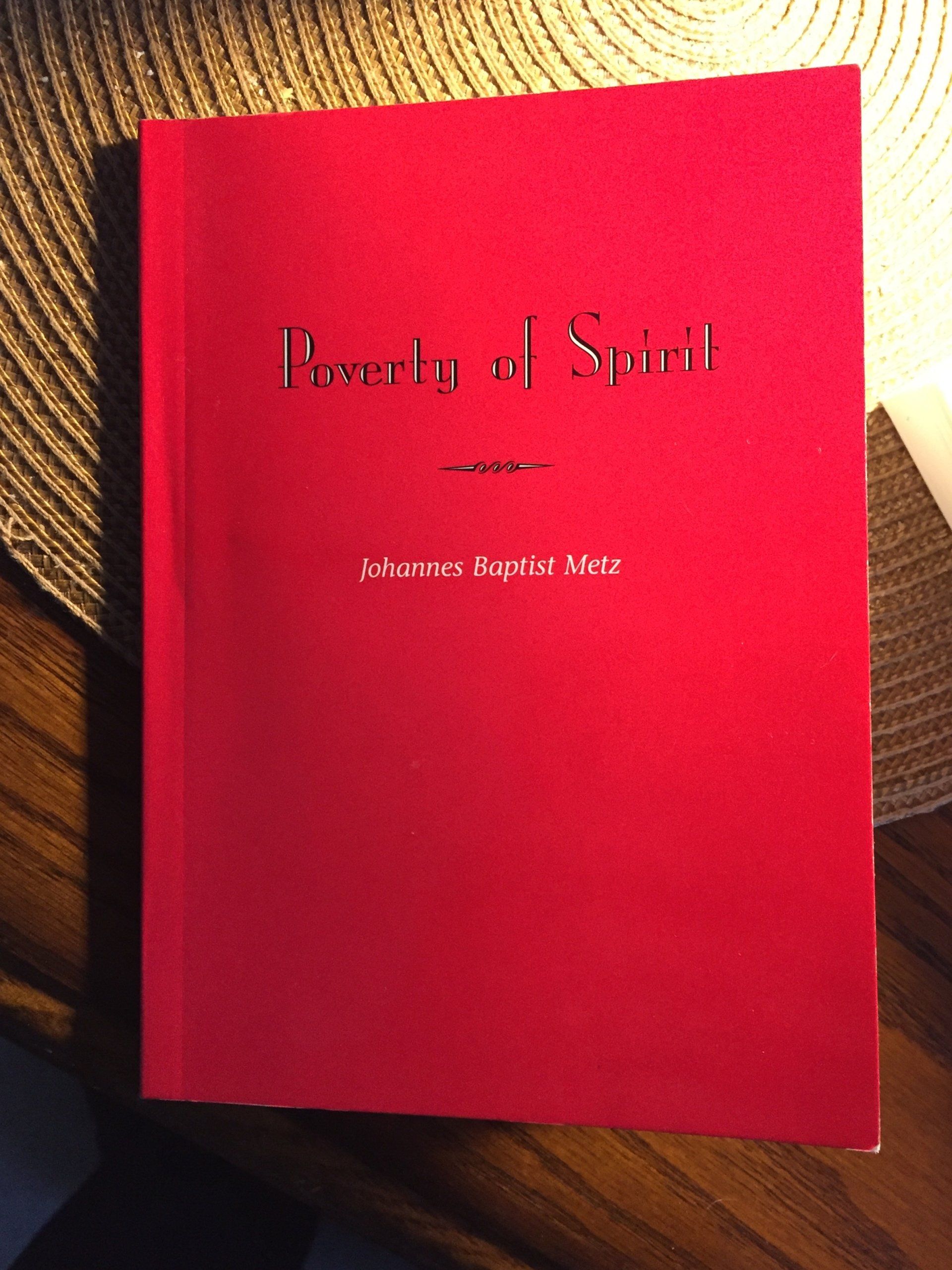Poverty of Spirit
Blessed are the poor in spirit,
for theirs is the Kingdom of Heaven.
~Matthew 5: 3

"This poverty [of spirit] is not just another virtue, one among many.
It is a necessary ingredient in any authentic Christian attitude toward life.
Without it there can be no Christianity and no imitation of Christ.
It is no accident that 'poverty of spirit' is the first of the beatitudes."
~Johannes Baptist Metz, Poverty of Spirit, (1968/1998), p. 21.
It has been several years since I bought Poverty of Spirit. This small book of only 52 pages is filled with wisdom, and I like it so much that I sent a copy to a friend. It was and is an important book for me personally, because I really didn't understand what poverty of spirit means and I constantly struggle with practicing humility.
I still have only a rudimentary understanding of the first beatitude, and only a beginner's level of practicing it.
What does it mean to have poverty of spirit when we live in a celebrity culture? When consumerism is what is valued so much more than simplicity? When those with wealth and power are idolized so much more than knowledge and wisdom are? When making fun of others, or just being mean-spirited, is applauded? When immediate reward seems vastly more important than sacrifice and long term, sustainable viability? When...when...when....?
This book is a "classic work of Christian spirituality", written for "people are struggling to become more human by joining themselves to the humanity of Christ", and written by "the famous German theologian [Metz]". [From the back cover.]
"To become human," Metz says, "is to become 'poor,' to have nothing that one might brag about before God. To become human means to have no support and no power, save the enthusiasm and commitment of one's own heart. Becoming human involves proclaiming the poverty of the human spirit in the face of the total claims of a transcendent God" (p. 10). What does it mean to become poor? "A human being with grace is a human being who has been emptied, who stands impoverished before God, with has nothing of which to boast" (p. 21).
I wonder if this spirit is compatible with ostentatious wealth? Social climbing? Need for constant praise and recognition?
Metz says poverty of spirit is a "necessary ingredient in any authentic Christian attitude toward life. Without it there can be no Christianity and no imitation of Christ" (p. 21). Further, he says it is the "mother of the three-fold mystery of faith, hope, and charity".
Poverty of spirit, like all the important practices of life, such as generosity, gratitude, humility, acquisition of knowledge and skill and wisdom, develops with intention over a lifetime and the experience of a lifetime.










